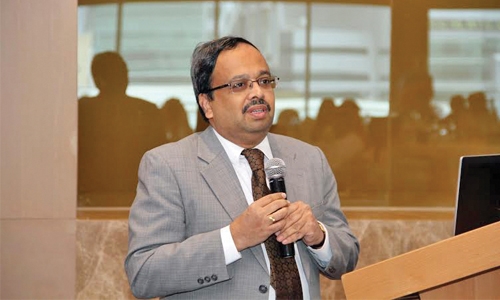Need to protect Bahrain’s genetic resources
Manama : Environmental experts convened a meeting at Downtown Rotana here yesterday to prepare the national framework for the protection of genetic resources in the Kingdom.
Bahraini officials from Supreme Council for Environment (SCE), United Nations Environment Programme (UNEP) officials and other regional experts discussed the significance of Nagoya Protocol for Equitable Access & Benefit Sharing (ABS) of Genetic Resources.
“The Nagoya Protocol is an international agreement, which aims to protect national genetic resources,” explained UNEP Head of Biodiversity and MEAs Dr. Balakrishna Pisupati.
“The agreement reaffirms a country’s sovereign rights over their national biological resources. If a foreign researcher or entity wants to use this resource or the knowledge associated with it, there should be an agreement between them and the country,” he told DT News.
“Currently, we are encouraging more and more countries, especially those with unique biodiversity such as in the Middle East region to be a part of this. Implementing this will take time because this protocol needs a national, legal and regulatory framework to be developed. Saudi Arabia already has a draft decree and has started working on it. Bahrain is yet to start, so we are hoping that this particular meeting will help,” he added.
“The importance of having the workshop here is to explain the advantages and disadvantages of the Nagoya protocol. Protection of natural resources that are not available anywhere else in the world is very important. Some of the plants in the desert as well as good quality pearls that are available in Bahrain are unique to the country and hence need protection,” said Supreme Council for the Environment (SCE) Chief Executive Officer Dr. Mohammed Mubarak bin Daina.
‘Fiddle with genetics’
“Foreign researchers’ claims on Bahraini resources are among the major challenges the country is facing in the field,” explained National Biodiversity Strategy and Action Plan (NBSAP) Project Manager Reem Al Mealla.
“The protocol is significant because without it foreigners can basically steal these genetic resources and claim it as theirs. When something is originally from a certain country from the GCC region, it has certain characteristics such as it can withstand the hot and humid climate as well as does not require a lot of water to survive etc.,” she elaborated.
“So what happens is that foreign researchers can come and take the plant, fiddle with its genetics and come up with a new breed, claiming that it is theirs. The Nagoya protocol allows access to these resources, but ensures fair sharing of benefits,” she added.
81 species of medicinal plants need protection
SCE Environment Specialist Nouf Al Wasmi said the Kingdom has a lot of genetic resources including medicinal plants that might be exploited by any outsiders.
“The protocol protects our resources from being exploited by outsiders without permission. Probably, the most important thing for Bahrain is to ensure protection of the 81 species of medicinal plants in the country,” said Al Wasmi.
“Another example of our resources is the palm trees; everything that comes from the palm tree including its leaves are significant. Pearl is also another important resource that we have. Cultured pearls in Bahrain that are of high quality cannot be found anywhere else,” she added.
‘Knowledge is in the
villages’
“Any effort to implement Nagoya protocol will require the help of the public, and for this the authorities will have to reach out,” Al Mealla said. “It will take quiet a while for us to get there. It is the sixth year since Nagoya protocol has been put together. Only nine out of 22 Arab countries have inked the deal, while only one GCC country has signed it.”
“Once we make a progress in joining the protocol, we will have to work on public awareness. Traditional knowledge does not come from one place or sector; it comes from the villages. The local population has exclusive knowledge about plants used in treating diseases,” the NBSAP Project Manager added.
Related Posts

